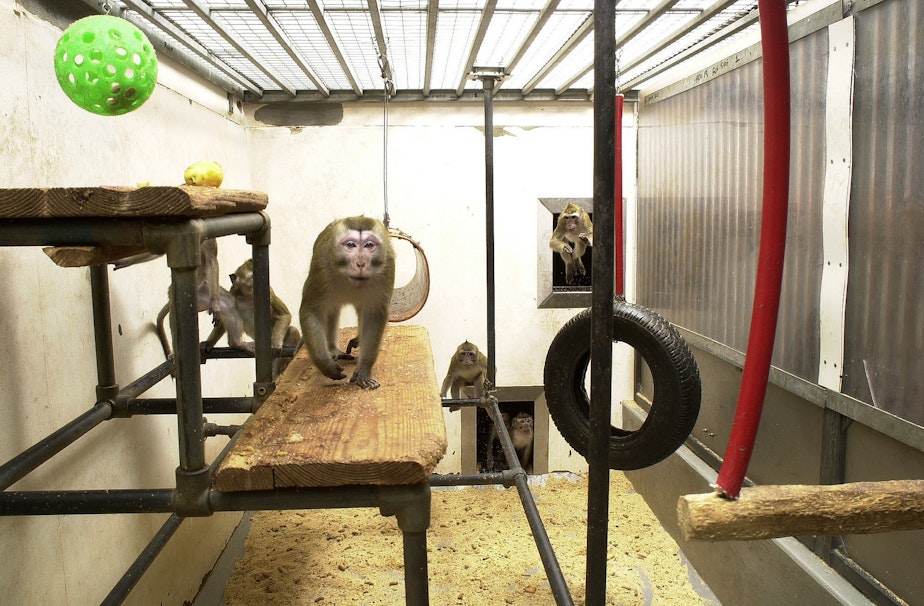Should we allow biomedical research on animals?

This year, amid protests, the University of Washington opened a $142 million underground Animal Research and Care Facility.
The University of Washington is home to one of seven federally funded primate research centers in the country. Much of the work done there is related to human health, researching treatments, for cancer, color blindness, and stroke. But there is strong disagreement about whether the university should be testing its research on animals.
We invited the university and a group that protested to talk about the university's animals research.
UW Animal research
The University of Washington is home to one of seven federally funded primate research centers in the country. There’s strong disagreement about whether they should be experimenting on animals at all. Dave Anderson is a laboratory animal veterinarian and Institutional Official for the University of Washington Animal Care and Use Program. John Pippin is a cardiologist and director of academic affairs for Physicians Committee for Responsible Medicine.
"There is a point at which you have to say are we getting anywhere? Are we finding useful information? Is it translating to human medicine?" says Dr. Pippin. "And I suppose if you dig down deep, my basic objection beyond the ethical, is that animal research is a very poor vehicle for accomplishing this. Always has been."
"We can point to so many examples where work done responsibly through animal models has significantly improved peoples' lives," says Anderson. "If you take a look at new therapeutics, vaccines, new surgical procedures, new ways to intervene in critical health issues ... The Ebola outbreak that's going on in Africa right now -- those people in Africa now, the people surrounding that outbreak, are being protected because of vaccines that were developed in non-human primate models."



